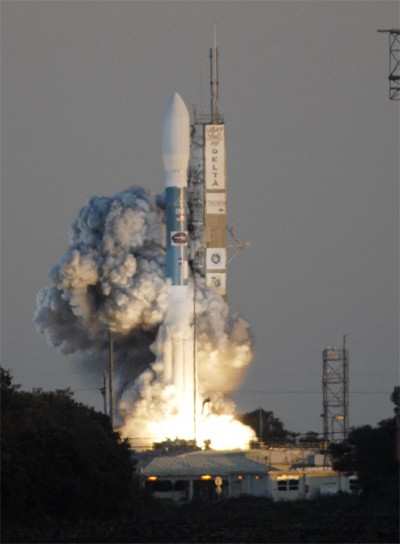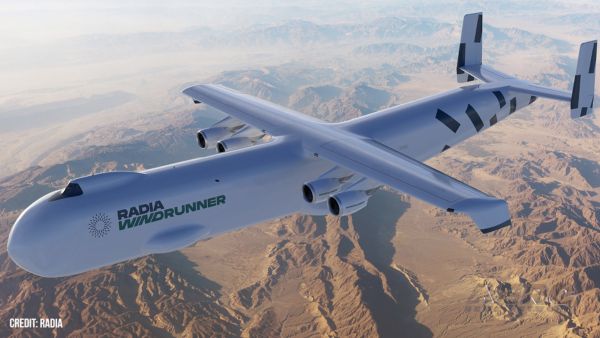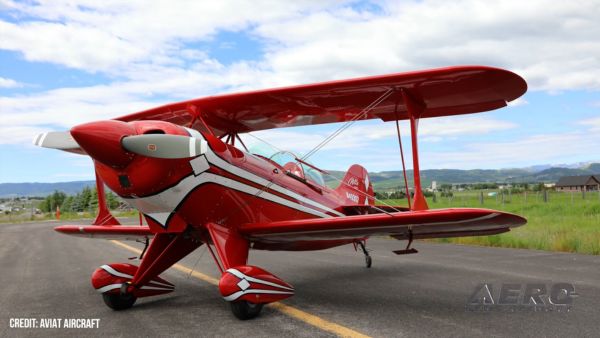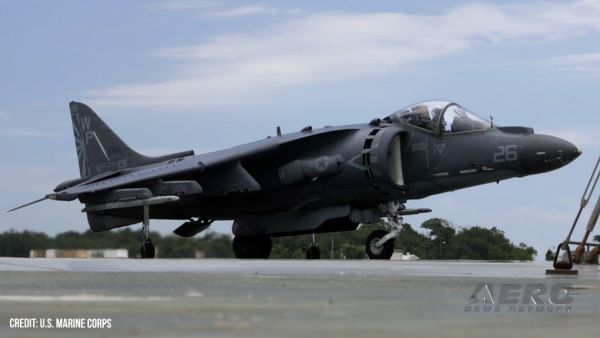Sun, Feb 18, 2007
Aurora Observation Project Underway
Five satellites... one rocket. Just past 6 pm EST Saturday,
NASA's THEMIS mission blasted off from Cape Canaveral Air Force
Station in Florida, racing into space on the flaming power of three
rocket stages and nine solid rocket motor.

Once in proper orbit, the five small satellites comprising the
Time History of Events and Macroscale Interactions during Substorms
(THEMIS) project will disperse around Earth to monitor auroras like
the Northern Lights.
NASA is undertaking the mission to investigate what causes
auroras in the Earth's atmosphere to change in appearance and
dissipate. Discovering why the light of auroras can fluctuate and
fade will provide scientists with important details on how the
planet's protective magnetosphere works and on the sun-Earth
connection.
As Aero-News reported, NASA
originally bumped the launch date to Friday, due to concerns at
Kennedy Space Center about an advancing cold front and the severe
storms accompanying it. The storms remained in the area throughout
Friday, causing stronger-than-acceptable upper-level winds and
resulting in a second 24-hour delay.
Named for the Greek goddess of justice, wisdom and good counsel,
and the guardian of oaths, THEMIS is a mission to investigate what
causes auroras in the Earth's atmosphere to dramatically change
from slowly shimmering waves of light to wildly shifting streaks of
color.
"The THEMIS mission will make a breakthrough in our
understanding of how Earth's magnetosphere stores and releases
energy from the sun and also will demonstrate the tremendous
potential that constellation missions have for space exploration,"
said Vassilis Angelopoulos, THEMIS principal investigator at the
University of California, Berkeley. "THEMIS' unique alignments also
will answer how the sun-Earth interaction is affected by Earth's
bow shock, and how 'killer electrons' at Earth's radiation belts
are accelerated."
NASA states discovering what causes auroras to change will
provide scientists with important details on how the planet's
magnetosphere works and the important Sun-Earth connection.
(Photo courtesy NASA)
More News
A Few Questions AND Answers To Help You Get MORE Out of ANN! 1) I forgot my password. How do I find it? 1) Easy... click here and give us your e-mail address--we'll send it to you >[...]
Go Around Instructions for a pilot to abandon his/her approach to landing. Additional instructions may follow. Unless otherwise advised by ATC, a VFR aircraft or an aircraft conduc>[...]
“We have an antiquated air traffic control system that is showing its age. In order to implement President Trump and I’s plan for a brand new system, we need the techni>[...]
Aero Linx: Society of Air Racing Historians The Society of Air Racing Historians was established with a small group of air racing enthusiasts with an intention to share their affec>[...]
Jumper’s Emergency Parachute Deployed Out Of The Airplane And Subsequently Drug Him Into The Horizontal Stabilizer Analysis: The pilot reported that during a skydiving flight>[...]
 ANN FAQ: Q&A 101
ANN FAQ: Q&A 101 ANN's Daily Aero-Term (06.05.25): Go Around
ANN's Daily Aero-Term (06.05.25): Go Around Aero-News: Quote of the Day (06.05.25)
Aero-News: Quote of the Day (06.05.25) ANN's Daily Aero-Linx (06.05.25)
ANN's Daily Aero-Linx (06.05.25) NTSB Final Report: Cessna U206
NTSB Final Report: Cessna U206



